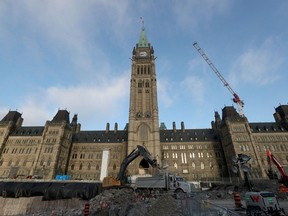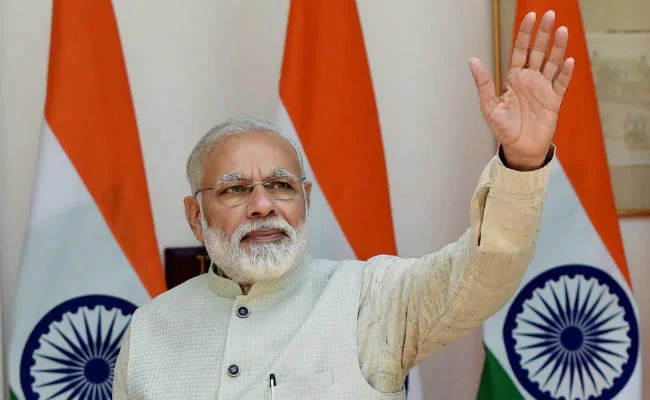‘It ought to be called the “loser Liberal pension protection act” because what we have is a deeply unpopular government faced with an election date of October 20, 2025’
Article content
OTTAWA • Part of a Liberal government bill that would guarantee 80 MPs a House of Commons pension without having to win another election might get scrapped amid objections from all three major opposition parties.
Bill C-65 proposes pushing back the date of the next federal election by one week to accommodate Canadians celebrating the Hindu religious festival Diwali.
Advertisement 2
Article content
But it would also allow MPs first elected in 2019 to qualify for their pensions.
MPs are eligible for a pension after six years of service.
It’s a span that’s of consequence to MPs first elected in the Oct. 21, 2019, general election, including Liberal Fredericton MP Jenica Atwin and Conservative Tobique-Mactaquac MP Richard Bragdon in New Brunswick, who were set to miss out on hitting the six-year threshold by as little as a single day with the next federal vote scheduled for on or before Oct. 20, 2025.
The government bill, a package of voting reforms that includes two additional days of advance voting and making Elections Canada’s “Vote on Campus” program permanent, among other changes, would also move the fixed election date to Oct. 27, 2025.
The Canadian Taxpayers Federation says the change could cost Canadians as much as $120 million, the estimated lifetime pension if all 80 MPs lose their seats.
The federation states that Bragdon would receive a pension that starts at $32,000 and see him collect a total of $1.56 million by the time he turns 90 years old.
For Atwin, her pension would start at $34,000 and see her collect just over $2 million by the time she reaches 90 years old.
Article content
Advertisement 3
Article content
But the public attention has now resulted in pushback from opposition parties.
“It ought to be called the ‘loser Liberal pension protection act’ because what we have is a deeply unpopular government faced with an election date of October 20, 2025,” said Conservative MP Michael Cooper said during the bill’s debate.
“The problem is that the Liberals elected in 2019 would not qualify for their pensions, so what does the government do? It tries to push back the election date to pad its pockets at the expense of Canadian taxpayers.
“It is about as cynical and as dishonest as it gets.”
Liberal MP Kevin Lamoureux pointed out that the date change would benefit more Conservative MPs than any other party.
A total of 32 Conservative MPs won their seats for the first time in 2019, while 22 Liberals, 20 Bloc Québécois MPs, and six NDP MPs would also benefit.
He also suggested opposition parties could band together to make changes to the bill.
“Here is a news flash for the member across the way. This is a minority government. In a minority government, the Liberal government, as he puts it, does not get everything it wants,” Lamoureux said.
Advertisement 4
Article content
“This is legislation that not only one political party is behind.”
Bill C-65 is part of the federal government’s supply-and-confidence agreement with the NDP that exchanges support in confidence votes for policy movement on key New Democrat priorities.
Electoral reform is part of that.
But the NDP also now appears uneasy with the election date change that benefits MP pensions.
“There are some very important components within this bill, specifically around adding two additional days for advanced polling and enshrining legislation for the vote on campus program. That is huge. I could go on,” said NDP MP Lisa Marie Barron, then adding that “Canadians do not want to see members of Parliament putting forward legislation that personally benefits their own pensions.”
“The NDP has made it very clear that we will be putting forward an amendment to move this election date back to the original date, and to see this important legislation go forward but not to see this component that unfairly benefits members of Parliament,” Barron said.
Lamoureux responded that “one can do the math.
Advertisement 5
Article content
“If every member of the Conservative party, of the Bloc and of the NDP says that they want to go to Oct. 20, I suspect the election will be on Oct. 20,” he said.
“It is as simple as that.”
The Bloc also said during debate that it wouldn’t be supporting the bill for several reasons, including changing the election date, which it contends would push the federal election to just six days before Quebec municipal elections.
That said, the Oct. 20 date conflicts with municipal elections in Alberta.
The debate was the first time that the bill appeared in front of the House of Commons.
It will still need to undergo several more hours of debate before reaching a second reading vote, likely to happen later this month.
The bill was introduced by New Brunswick MP Dominic LeBlanc, the minister responsible for democratic institutions.
Leblanc’s spokesperson Jean-Sébastien Comeau has maintained that the change to the election day is not about pensions.
“The amendments to the Canada Elections Act that we introduced are aimed first and foremost at maximizing voter participation and protecting the integrity of federal elections,” he said in an email last month.
“Given that an important religious holiday and municipal elections will be held in Alberta on October 20, 2025, we are proposing to move the date of the federal election to October 27, 2025.”
The government isn’t bound by the fixed election date and in a minority the Liberals could lose the confidence of the House of Commons at any point, but Prime Minister Justin Trudeau has said he expects the election to take place in 2025.
Article content







